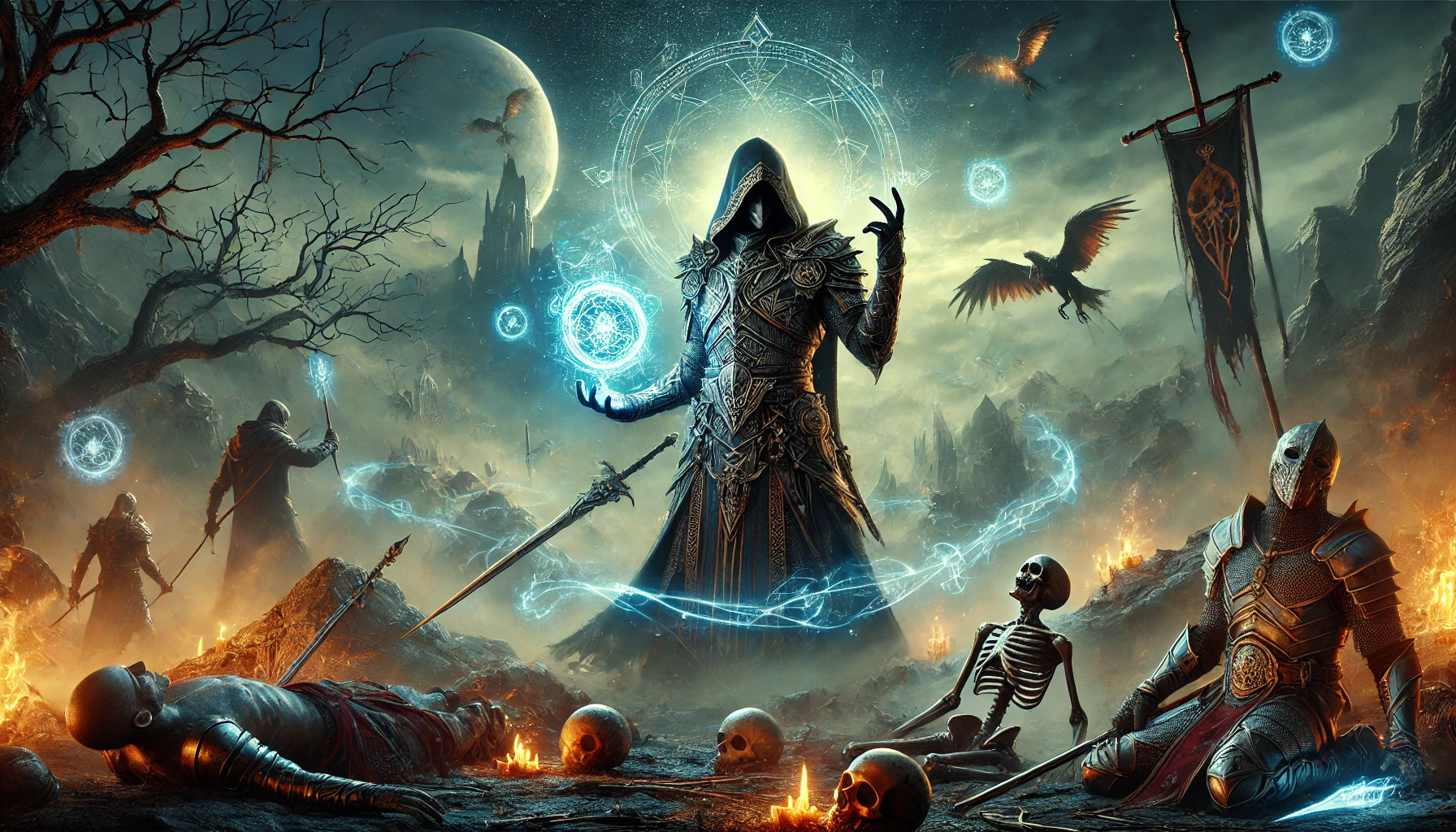The concept of a genius corpse collecting warrior is as intriguing as it is mysterious. A figure steeped in strategy, mysticism, and unparalleled combat skills, this archetype is both feared and revered in the realms of fantasy. Whether portrayed as a lone figure navigating desolate battlefields or a pivotal character in grand narratives, this warrior’s ability to collect corpses for a higher purpose elevates their legend.
This article explores the origins, traits, and cultural significance of the genius corpse collecting warrior, while delving into how this concept resonates within fantasy literature, games, and storytelling.
Origins of the Genius Corpse Collecting Warrior Archetype
The idea of a warrior who collects corpses is deeply rooted in mythology, folklore, and modern fantasy.
1. Mythological Foundations of Genius Corpse Collecting Warrior
- Ancient Legends: In Norse mythology, warriors like Valkyries were tasked with selecting fallen heroes from battlefields for Valhalla. Similarly, the concept of corpse collectors existed in Japanese folklore, where oni (demons) would harvest souls.
- Spiritual Undertones: The act of collecting corpses often symbolizes power over life and death, as well as a connection to the afterlife.
2. Evolution in Modern Fantasy
The archetype has evolved into a tactical and strategic figure, often portrayed as:
- A necromancer-like warrior who collects corpses to build an army of the undead.
- A pragmatic fighter who uses fallen enemies as resources to gain an upper hand in battles.
Traits of the Genius Corpse Collecting Warrior
This archetype stands out due to its unique combination of intelligence, combat prowess, and mysticism.
1. Strategic Mindset
- Battlefield Analysis: Masters at reading the tide of battle, they know how to turn defeat into victory.
- Resourcefulness: Fallen warriors are seen not as casualties, but as tools for a greater purpose.
2. Combat Expertise
- Skilled in various weaponry, from swords to mystical artifacts.
- Capable of taking on multiple foes simultaneously, ensuring maximum advantage.
3. Mystical Abilities
- Powers tied to necromancy, alchemy, or spiritual energy allow them to manipulate corpses.
- Some are depicted as having the ability to absorb the skills or memories of fallen warriors.
4. Enigmatic Personality
- Often portrayed as loners or anti-heroes, their motivations remain a mystery.
- Deeply philosophical, they grapple with the morality of their actions.
Why Corpses Are Central to Their Identity
The collection of corpses serves multiple narrative and symbolic purposes:
- Tactical Advantage:
- Bodies can be resurrected as allies or used as barriers in combat.
- Their enemies’ strength is turned against them.
- Symbol of Mortality:
- Highlights the fragility of life and the warrior’s power over death.
- Narrative Depth:
- Adds complexity to their character, often leading to moral dilemmas.
- Connection to Higher Powers:
- Depicts them as intermediaries between the mortal world and the afterlife.
Cultural Representations of the Genius Corpse Collecting Warrior
This archetype has made its mark in various forms of media and storytelling:
1. Literature
- Classic Fantasy Novels: Characters like necromancers in high fantasy often align with this archetype.
- Modern Tales: Dark anti-heroes in series such as The Witcher explore similar themes of morality and death.
2. Video Games
- RPGs and Strategy Games: Titles like Dark Souls and Diablo feature warriors who wield death as a weapon.
- Customization Options: Gamers can often build characters with corpse-related abilities, such as summoning undead minions.
3. Movies and TV Shows
- Iconic Characters: Films like Lord of the Rings portray figures like the Army of the Dead, reflecting this concept.
- Television Tropes: Dark fantasy series often showcase corpse collectors as morally ambiguous figures.
Key Characteristics That Define Their Popularity
Several elements contribute to the enduring appeal of the genius corpse collecting warrior:
1. Relatable Complexity
- Their internal struggles make them compelling protagonists or antagonists.
2. Tactical Ingenuity
- Audiences admire their ability to outsmart enemies, even in dire situations.
3. Supernatural Allure
- Their mystical abilities add an element of wonder and intrigue to their persona.
4. Moral Ambiguity in Genius Corpse Collecting Warrior
- They force viewers or readers to question the ethical implications of power and survival.
Notable Examples of Genius Corpse Collecting Warriors
Several characters in pop culture embody aspects of this archetype:
1. Arthas Menethil (World of Warcraft)
- A prince turned death knight who wields the power of the undead.
2. Geralt of Rivia (The Witcher)
- While not a corpse collector, his moral ambiguity and strategic mind align with this archetype.
3. The Necromancer (Diablo Series)
- Masters of death magic, able to summon undead armies and manipulate corpses.
How to Write a Genius Corpse Collecting Warrior Character
If you’re crafting a story and want to include this archetype, consider the following steps:
- Define Their Motivation:
- Are they driven by revenge, duty, or survival?
- Craft Their Abilities:
- Blend combat skills with unique corpse-related powers.
- Build a Moral Conflict:
- Challenge them with dilemmas about their methods and the consequences of their actions.
- Design Their Appearance Genius Corpse Collecting Warrior
:
- Incorporate dark, mysterious elements such as cloaks, enchanted armor, or mystical symbols.
The Future of the Genius Corpse Collecting Warrior Archetype
As fantasy storytelling continues to evolve, this archetype is likely to grow in complexity. With advancements in gaming, literature, and cinema, we can expect to see more nuanced portrayals that explore their motivations, ethical dilemmas, and supernatural capabilities.



